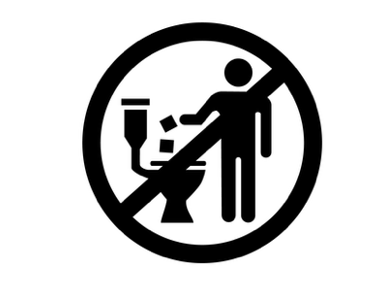Call to Action: Support H.R. 1267 — The Water Systems PFAS Liability Protection Act
Clean water agencies and biosolids managers didn’t create PFAS contamination, but without a federal exemption, they could still be held liable under CERCLA. CASA is advocating for passage of H.R. 1267, the Water Systems PFAS Liability Protection Act, to safeguard agencies and ratepayers from costly litigation. Learn how you can support this critical legislation and help protect our sector.
Clean water agencies and biosolids managers are passive receivers of PFAS chemicals and are not responsible for their production or contamination. Despite this, our sector remains at risk of being held liable under CERCLA for PFAS contamination. This is because the U.S. Environmental Protection Agency (EPA) did not provide a liability exemption for our sector in its 2024 Final Rule, and Congress has yet to act to provide this critical exemption through legislation.
Without an explicit liability exemption, CASA agencies are vulnerable to being drawn into third-party litigation and forced to pay for CERCLA cleanup costs, costs that are ultimately passed down to ratepayers.
H.R. 1267, the Water Systems PFAS Liability Protection Act, provides clean water agencies and biosolids managers with explicit CERCLA liability exemptions for PFAS contamination. CASA supports this legislation, which is currently pending before the House Committee on Transportation and Infrastructure and the House Committee on Energy and Commerce. It is essential that Congress pass H.R. 1267 to protect our sector.
To this end, CASA agencies are encouraged to send letters of support for H.R. 1267 to their congressional delegations using the provided template letter. Letters should be submitted between now and December.
If you have any questions, please contact Sarah Sapirstein, CASA’s federal advocate, at ss**@**********es.com.
Senate WIPPES Act Report Outlines Need
 A new Senate report on the WIPPES Act (S.1092) underscores the importance of clear “Do Not Flush” labeling for non-flushable wipes, 90% of which are still entering U.S. markets without proper warnings. The report outlines the bill’s goals, expected impacts, and next steps as it moves closer to consideration on the Senate floor.
A new Senate report on the WIPPES Act (S.1092) underscores the importance of clear “Do Not Flush” labeling for non-flushable wipes, 90% of which are still entering U.S. markets without proper warnings. The report outlines the bill’s goals, expected impacts, and next steps as it moves closer to consideration on the Senate floor.
The Senate Committee on Commerce, Science and Transportation has released its report on the WIPPES Act (S. 1092), which establishes a national mandate for “Do Not Flush” labeling requirements for non-flushable wet wipes and mirrors existing California law. In its report, the committee outlines the purpose of the bill, its provisions, and the expected associated impacts if S.1092 were enacted. Importantly, the report emphasizes the need for the WIPPES Act, as citing that 90% of the wipes products sold in the U.S. are non-flushable wipes and that proper labeling notifying consumers to not flush these wipes leads to reduced improper flushing as a means of disposal.
While the report notes that implementing the bill, if it were enacted into law, would cost the Federal Trade Commission $4 million over 2025-2030 based upon the Congressional Budget Office’s estimates, it states that the “compliance costs associated with S.1092’s labeling requirements are expected to be minimal. It is believed that such expenses will be outweighed by decreased operating costs for wastewater systems from reduced disposal of non-flushable wipes into wastewater systems.”
At the end of September, S.1092 was placed on the Senate Legislative Calendar following the successful bipartisan markup of the bill earlier this spring. The action to place the S.1092 on the Senate Legislative Calendar represents a step forward in the process for the bill to be considered on the Senate Floor.
The Government Shutdown Drags into Its Fifth Week; Federal Workforce Furloughs Continue
 The federal shutdown has stretched into its 36th day, surpassing the previous record of 34-days during the 2019 shutdown. Over the past month, Senate negotiations have remained stalled over health care subsidy extensions, while the House continues to be on recess. As federal workers miss paychecks and agency furloughs expand, the ripple effects are growing across the nation.
The federal shutdown has stretched into its 36th day, surpassing the previous record of 34-days during the 2019 shutdown. Over the past month, Senate negotiations have remained stalled over health care subsidy extensions, while the House continues to be on recess. As federal workers miss paychecks and agency furloughs expand, the ripple effects are growing across the nation.
For more than a month now, the federal government has been shut down. The Senate has continually failed to pass the House-passed Continuing Resolution (CR), as Senate Democrats have been unwavering in their demand that a final CR include an extension for the expiring Affordable Health Care insurance premium subsidies. Meanwhile, the House has remained on recess. At the time of this writing, there are reports that rank-and-file Senate Democrats and Republicans have begun the early stages of discussions on what a policy “fix” could be for the premium subsidies issue, but it is unclear what a resolution could include. Senate Majority Leader John Thune has reiterated that an extension of the ACA insurance subsidies will require 60-votes to pass. This is important as it signals that Senate Republicans will not, at the time of this writing, do away with the filibuster as the President has suggested to resolve the impasse. This means that Republicans will need Democrats to vote with them to pass any future deal that is struck. Further complicating the shutdown saga and adding new sources of pressure to the issue is that federal workers have now missed their first paychecks, funding for popular social safety net programs risk lapsing, health insurance marketplaces have opened with increased premiums for some, and concerns of increasing air traffic delays as the nation approaches a busy holiday travel period later this month. Beyond these new impacts, the federal agencies continue to furlough employees deemed as ‘non-essential’ under shutdown contingency plans. At the end of last month, the U.S. Environmental Protection Agency furloughed an additional 4,000 workers. These furloughs will continue to exacerbate the delays in federal agency operations.
White House Memo Outlines New Protocol for Deregulation Activities
 A new memo from the White House’s Office of Management and Budget (OMB) outlines sweeping new protocols for rolling back federal regulations deemed inconsistent with recent Supreme Court rulings, including the landmark decision overturning the Chevron Doctrine. The directive signals a significant shift in how agencies review, justify, and potentially repeal existing rules.
A new memo from the White House’s Office of Management and Budget (OMB) outlines sweeping new protocols for rolling back federal regulations deemed inconsistent with recent Supreme Court rulings, including the landmark decision overturning the Chevron Doctrine. The directive signals a significant shift in how agencies review, justify, and potentially repeal existing rules.
The Office of Management and Budget’s (OMB) Office of Information and Regulatory Affairs (OIRA) has issued new guidance to all federal departments, agencies and commissions detailing the priority to implement the White House’s deregulatory agenda. OIRA is the key White House office that has oversight of federal agency rulemakings. The directive follows upon earlier Executive Orders and memorandums and directs agencies to roll-back all regulations deemed to be “facially” illegal based upon finding that the rules are not statutorily mandated or are inconsistent with the Supreme Court of the U.S. (SCOTUS) decisions. This includes SCOTUS’ Loper Bright and the “major questions” decision that reversed the Chevron Doctrine that previously deferred whether a regulation is warranted based upon the federal agency’s expertise. Additionally, for regulations not considered to be facially illegal, the directive instructs agencies to review rules that are in place to build a record to identify rules that fail to provide appropriate cost benefits. OIRA would the review the record and determine if the rule is eligible to be repealed. As a result, the new guidance will lead to further remaking of the existing federal regulatory framework.




 @CASA_CleanWater
@CASA_CleanWater